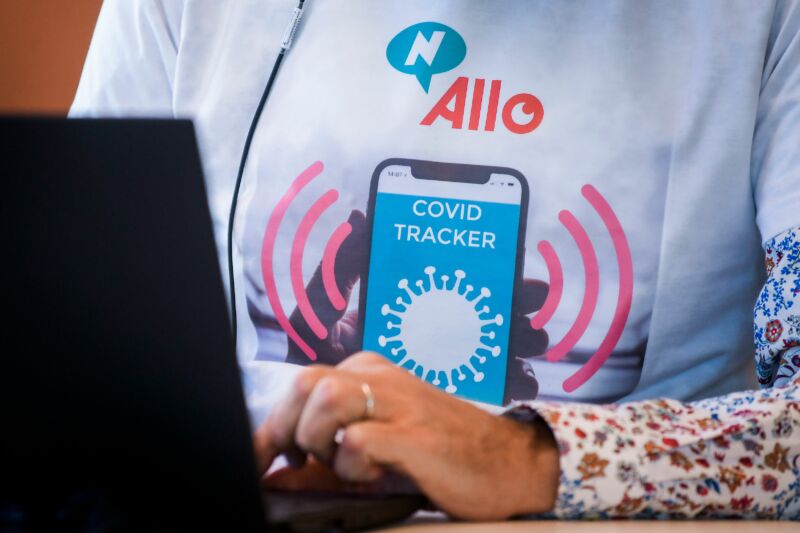I enrolled in a coronavirus contact tracing academy

Enlarge / Inside a call center for COVID-19 contact tracing in Brussels. (credit: LAURIE DIEFFEMBACQ/BELGA/AFP via Getty Images)
Six weeks after the US surpassed all other countries in the number of reported COVID-19 cases, some states are beginning to ease social distancing measures. As people start to slide back into close contact with one another, the nation's top health officials are worried that the US still doesn't have systems in place to effectively test, track, and halt the spread of the deadly respiratory disease. Testifying remotely before the Senate on Tuesday, Anthony Fauci, director of the National Institute of Allergy and Infectious Diseases, warned of a resurgence if cities and states open up without being able to contain new cases. My concern is that we will start to see little spikes that might turn into outbreaks," he said.
Without a vaccine, smothering these spikes will require a legion of contact tracers, whose job will be to find people who've been exposed to the novel coronavirus and prevent them from spreading it. Other countries, like South Korea and Singapore, have already proved this test, trace, isolate" strategy can work-if you have enough tests and enough tracers. The US doesn't have enough of either.
In the Before Times, there were only about 2,200 contact tracers for the whole US, according to the Association of State and Territorial Health Officials. They would help squelch periodic flareups of tuberculosis, HIV, syphilis, and other dangerous diseases. Now they're all working around the clock on COVID-19. Public health experts estimate we need 100,000 to 200,000 more to safely reopen American society.
Read 19 remaining paragraphs | Comments